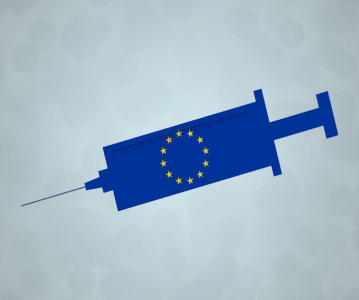Brexit's trick or treat on patient safety

Despite a delayed Brexit, unpredictability adds further complications to the EU FMD regulation.
After months of operational upheaval in preparation for the EU Falsified Medicines Directive (FMD) enforcement date, pharmaceutical companies are now faced with the huge amount of uncertainty that still surrounds Brexit and the impact it could have on the new regulations.
The sector has been given limited guidance with regards to the UK’s exit from the European Union (EU), meaning pharmaceutical manufacturers have to put contingency plans in place to cover the worst-case scenario.
So, what could Brexit mean for the pharma industry and the safeguarding of patients and medicines? In this Q&A, Staffan Widengren, Director of Corporate Projects at Recipharm discusses what Brexit could mean for EU FMD and the steps companies can take to limit the impact on their wider operations.
How will Brexit affect the FMD regulation?
Widengren: Until 31 October 2019, the new date for the UK’s departure from the EU, British pharmaceutical manufacturers are legally required to comply with the EU FMD legislation. Many CDMOs failed to reach compliance for the 9 February regulatory deadline, meaning they had to stockpile medicines manufactured before this date and are still working to put the required measures in place to deliver serialised products.
Post-Brexit unpredictability adds further complications to this matter. Ideally, following the UK’s exit from the EU, regulatory bodies will continue to work together to ensure a complementary system to the EU FMD is in place in the UK. However, whether this will be achieved, and how quickly this will take effect, remains to be seen.
In conjunction with this, the European Medicines Agency (EMA) and European Commission (EC) have notified the pharmaceutical industry that they will need to adapt processes and cater for the changes to marketing authorisations to ensure validity when the UK leaves the EU. As such, by the end of 2019, any medicinal products intended for the EU market will be required to undergo additional batch testing after being released from the UK to ensure they comply with EU regulations.
The NHS also recently issued a letter to UK pharmacies stating that EU FMD compliance is not necessary until there has been more information and guidance around Brexit, which contradicts the guidance provided by the Medicines and Healthcare Regulations Agency (MHRA) and EMA for pharmaceutical manufacturers.
What are the implications of Brexit uncertainty on patient safety?
Widengren: Without clear guidance on the UK’s intentions, patient safety and the continuity of drug supply are at risk. Pharmaceutical companies are still unsure about how the EU FMD will be managed in the UK following its exit from the EU. Will the UK adopt its own separate system? Will the UK’s supply chain be as stable and secure as Europe’s? The sooner the British government and MHRA shed light on post-Brexit plans the sooner companies will be able to start putting the necessary measures in place to ensure they continue to prevent falsified drugs being released to the market and reaching patients.
What are pharmaceutical companies doing to minimise the impact of Brexit on operations?
Widengren: UK-based pharmaceutical firms have predominantly chosen to implement contingency plans that cater for a ‘no-deal Brexit’ so that they can continue to operate within the EU market, regardless of the outcome.
At Recipharm we implemented a 3-year programme that enables us to successfully supply serialised products to Europe in line with the EU FMD regulations. We will continue to handle all products under EU legislation requirements by reporting serial numbers to the EU hub and national systems until such a time when the MHRA offers clarity on any alternative requirements.
Speaking more broadly, we also set up a Brexit taskforce, which assumed responsibility for minimising the potential impact of the UK’s exit from the EU on our operations. Recipharm will be able to adequately cater for any additional testing and batch release requirements, in turn minimising the potential for drug shortages. Marketing authorisation holders (MAH) supplying to EU countries were told that they could carry out quality control testing in the UK if an exemption submission was made no later than 29 March 2019 enforcement date, meaning that medicinal products would not need to be retested in the EU until the end of 2019. However, the UK parliament recently voted to further delay the departure from the EU until Thursday 31 October.
Related News
-
News Patients vs Pharma – who will the Inflation Reduction Act affect the most?
The Inflation Reduction Act brought in by the Biden administration in 2022 aims to give better and more equitable access to healthcare in the USA. However, pharma companies are now concerned about the other potential costs of such legislation. -
News CPHI Podcast Series: What does the changing US Pharma market mean for industry and patients alike?
In this week's episode of the CPHI Podcast Series Lucy Chard, Digital Editor for CPHI Online is joined by James Manser to discuss the political and market changes in the US pharma field. -
News CPHI Barcelona Annual Report illuminates industry trends for 2024
The CPHI Annual Survey comes into it’s 7th year to report on the predicted trends for 2024. Over 250 pharma executives were asked 35 questions, with their answers informing the industry landscape for the next year, spanning all major pharma marke... -
News Which 10 drugs are open to price negotiation with Medicare in the USA?
The Centres for Medicare & Medicaid Services, under the Biden administration in the USA, has released a list of the 10 drugs that will be open to price negotiations as part of the new legislation under the Inflation Reduction Act (IRA). -
News EU Medical Devices Regulation causes unintended disappearances of medical devices for children, doctors state
Doctor groups and associations have appealed to the EU to correct the EU Medical Devices Regulation law that may cause unintended shortages of essential drug and medical devices for children and rare disease patients. -
News 10 Major Drug Approvals So Far in 2023
Last year, 37 novel drugs were approved by the FDA, this was a high number for such a category, and covered many fields including oncology, demonstrating how promising further research is, and how it is only continuing to build. To date, there are alre... -
News Detecting Alzheimer's disease with a simple lateral flow test
A novel rapid diagnostic test for early-stage Alzheimer's disease has been developed using a biomarker binder from Aptamer Group along with technology from Neuro-Bio, the neurodegenerative disease experts. -
News CPHI Podcast Series: outsourcing and manufacturing trends
Listen to the CPHI Podcast Series this June to hear Gil Roth of the PBOA speak with Digital Editor Lucy Chard about the biggest trends and topics to watch in pharma outsourcing and manufacturing at the minute.
Position your company at the heart of the global Pharma industry with a CPHI Online membership
-
Your products and solutions visible to thousands of visitors within the largest Pharma marketplace
-
Generate high-quality, engaged leads for your business, all year round
-
Promote your business as the industry’s thought-leader by hosting your reports, brochures and videos within your profile
-
Your company’s profile boosted at all participating CPHI events
-
An easy-to-use platform with a detailed dashboard showing your leads and performance







